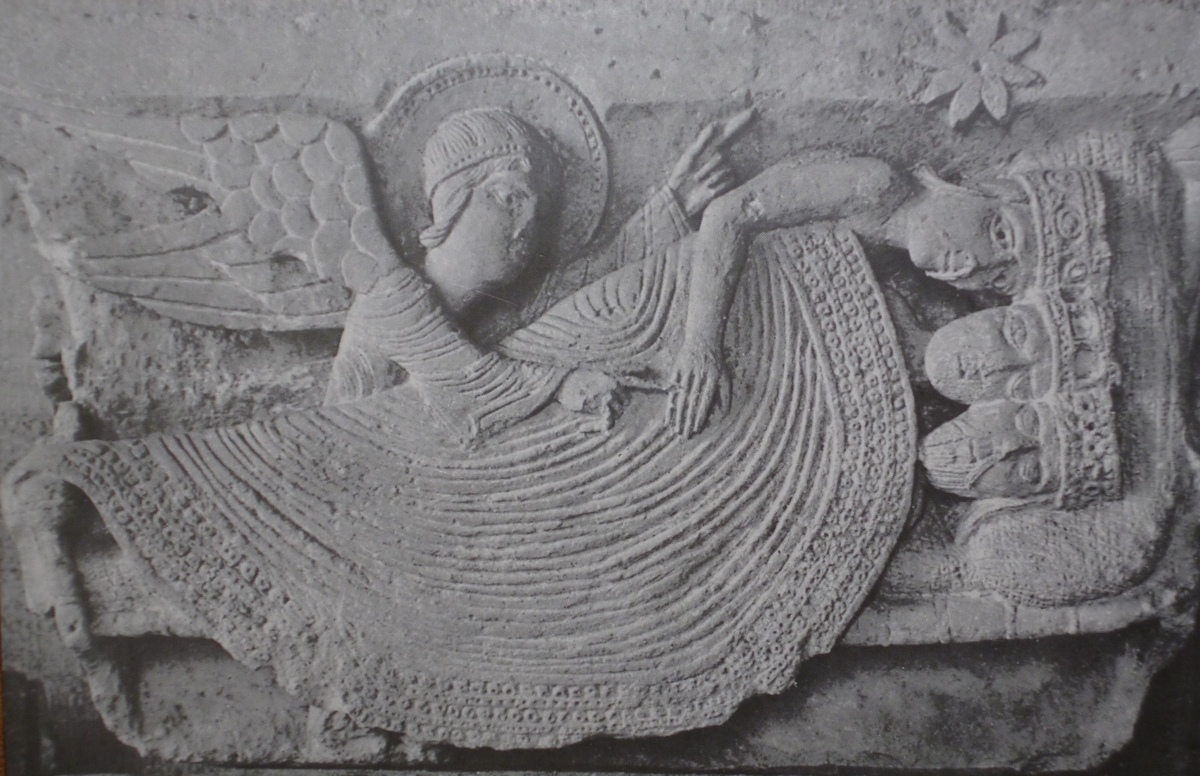I have promised to write something about relics and pilgrimages. Pilgrimages, as they say, need no introduction and are a living element in contemporary spirituality, Christian and post-Christian. The pilgrim route to Santiago de Compostela is probably the best known and is used by those with a wide spectrum of motivations, as celebrated in the movie ‘The Way’. But it is only one of many. The cult of relics, on the other hand, probably seems extremely weird to those not brought up with it and even on a generous view, there is sometimes something rather disturbing about finding oneself confronted with the remains of a rotting corpse beneath a sumptuously decorated altar!
But what do relics and pilgrimages have to do with our present-day debates about Europe? I’ll try to explain.
Last weekend we drove through St Andrew’s, chiefly famous today for its University and major golf tournaments. Once, though, many hundred years before the University was founded or golf was invented, it was known for having an assortment of bones said to have belonged to St Andrew, Galilean fisherman, brother of St Peter, and crucified on a diagonal cross for his witness to Christ. In addition to Scotland, Andrew also became patron saint of Greece, Russia, Romania, and (later) Barbados as well as not a few cities and the Russian Imperial Navy. In the 14th century, other bones of the saint were discovered in Amalfi (a rather warmer seaside city).
As with many other relics, it was quite usual in the Middle Ages for different places to have different parts of a saint’s body. This can inspire cynicism, as in the old joke that there were once enough splinters of the true cross to reconstitute a forest. I have myself seen three right forearms of John the Baptist (especially popular as this is the arm with which he pointed to Jesus and declared him to be the Lamb of God).
But this also meant that people had different kinds of connections: a map of Europe built out of the pattern of saints’ relics would show very different lines of communication from those determined solely by centres of political and military power or national boundaries. These connections could even cut across religious boundaries, since the Turkish Sultan was also a keen collector of relics and visitors to the Topkapi Palace in Istanbul today can see for themselves Abraham’s cooking-pot, Joseph’s turban, and the staff with which Moses struck the Red Sea (now in a gold covering).
The same is true of pilgrim ways, often ways leading to particularly important sets of relics. In the Middle Ages the routes leading to Santiago de Compostela (home to the relics of St James) spread a complex web of roads and pathways throughout Europe. The route from the Pyrenees, today’s Camino, was just the last stage of a journey that, for some pilgrims, stretched over many hundreds of miles from northern, central, or eastern Europe.
So, and this is my point, the lines that mark the boundaries of today’s nation-states are only one possible way of defining the map of Europe and, for some people in some ages, not the most important. Europe is a place of many nations but also of many paths and roads, linking people in often unexpected ways. Europe always has been a place of movement as its peoples criss-cross natural and human boundaries, looking for work, love, knowledge, and military or religious glory. And this is just as important a part of its identity as the ‘borders’ that define its states.


